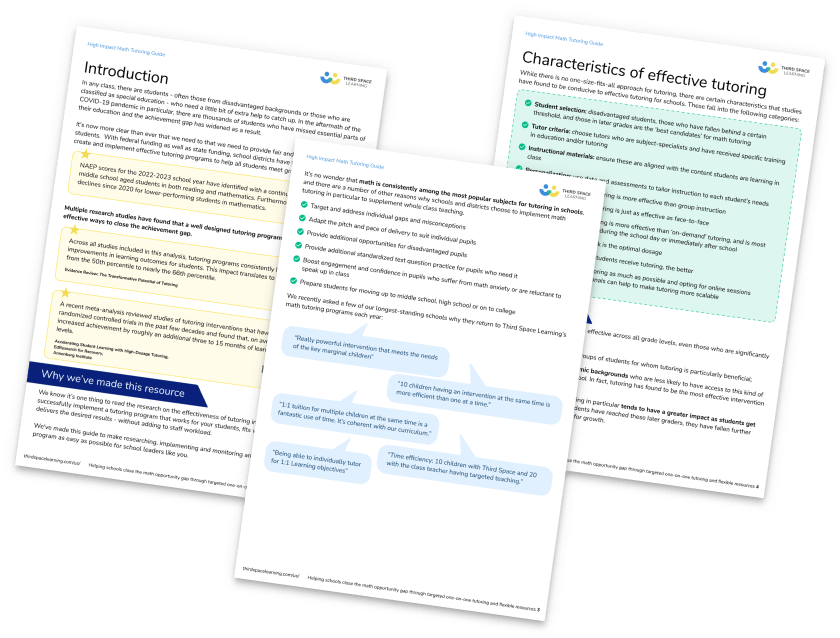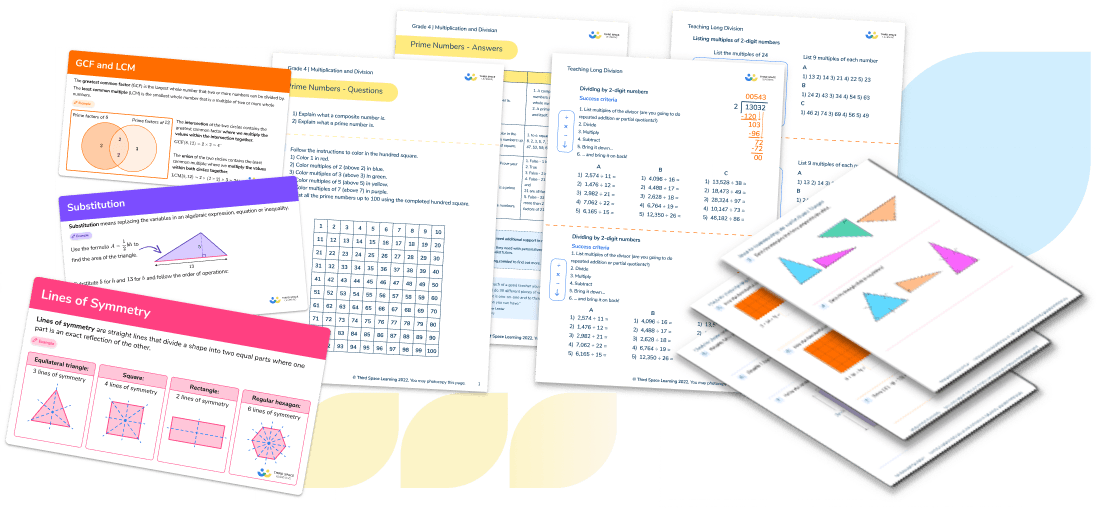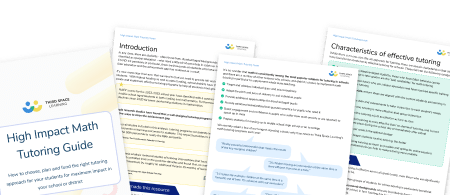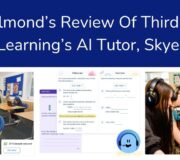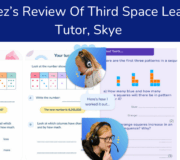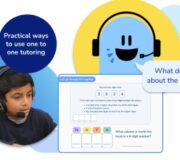High Impact Tutoring: A Complete Guide For Maximizing Student Success For Schools & Districts
Students in high impact tutoring programs can gain up to 15 months of learning across grade levels. This makes high impact tutoring one of the most effective strategies to accelerate student learning and improve measurable academic outcomes, such as standardized test scores.
For school and district leaders, implementing a high impact tutoring program that makes a meaningful difference requires careful planning, strategic resource allocation, and ongoing evaluation.
This guide explains what high impact tutoring is, outlines its key components, and offers strategies for implementation.
What is high impact tutoring?
High impact tutoring is a research-based practice that accelerates student learning through intensive, individualized instruction. It involves frequent, high-quality interactions between students and tutors designed to address the individual student needs and align with the school curriculum.
Stanford University research has shown that high-impact tutoring has directly demonstrated significant gains in student learning, particularly in math and literacy.
Characterized by high dosage, intensive tutoring, and a focus on student outcomes, the research suggests that at least 3 x 30-minute or 2 x 45-minute weekly sessions are required to make significant learning gains.
All high Impact tutoring programs share core elements, including intensive tutoring and targeted student support.
High Impact Tutoring Guide for Schools
Implement high impact tutoring with ease! Our guide contains how to choose, plan and fund the right tutoring approach for your students for maximum impact in your school.
Download Free Now!Why schools should implement high impact tutoring
Researchers have found high impact tutoring 20 times more effective than standard tutoring models for accelerating student learning in math. Its structure and intensity make it more effective in addressing learning gaps than other initiatives such as after-school programs.
Effective across grade levels
It is also effective across grade levels and subject areas. A recent meta-analysis showed that high impact tutoring can increase achievement by 3-15 months of learning across grade levels.
Scalable
Unlike other programs, it is effective when scaled. Many educational programs lose effectiveness when scaled up, but studies of 15 large-scale high impact tutoring programs serving between 500 and 7,000 students showed an increase of 2-10 months of learning.
Educational equity
By increasing tutoring access to disadvantaged students who often have greater need and access to fewer resources, high impact tutoring is a particularly effective way to increase achievement for lower-income students. Expanding access to tutoring can help promote equity in math education and close the achievement gap.
One study in Chicago found implementing high impact tutoring narrowed the Black-White math test score by nearly one-third in a single year.
Personalized instruction
When delivered 1:1, high-dosage tutoring is personalized to meet the learning needs of the individual. In turn, this develops self-efficiacy, resilience, and confidence in the tutored subject.
Teacher pipeline
High impact tutoring programs often employ college students or recent graduates. This mutually beneficial arrangement gives learners specialist help from graduates while they gain career development. By engaging in tutoring, graduates are introduced to the world of teaching which can help build a future teaching pipeline.
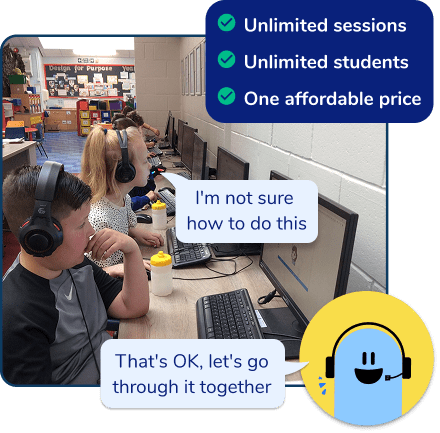
Meet Skye, the voice-based AI tutor making math success possible for every student.
Built by teachers and math experts, Skye uses the same pedagogy, curriculum and lesson structure as our traditional tutoring.
But, with more flexibility and a low cost, schools can scale online math tutoring to support every student who needs it.
Find out moreKey elements of high impact tutoring programs
High impact tutoring strategies differ from other modes of tutoring seen in schools. Several characteristics contribute to its success rate. According to the National Student Support Accelerator these include:
Effective tutors
Programs should prioritize strong relationships between students and tutors, with a focus on trust and student engagement. They should have a consistent tutor for each student, with oversight and support for the tutor.
Where possible, opt for a reputable tutoring company with a proven track record that performs background checks, uses qualified tutors and provides ongoing pedagogical, safety and equity training.
The best intensive program designs use engaging, reliable and consistent tutors who provide quality interactions.
High quality instruction
Effective high-impact tutoring resources include high-quality materials and instructional materials that align with classroom content. They should be designed to complement school curriculum and support student academic growth.
The best way to implement high-quality instructional materials is in small group sessions of three students or less where materials can be personalized to meet student needs.
Guilford County, North Carolina, invested heavily in high quality tutoring as a central strategy for boosting math performance. They secured funding support from universities and local organizations to ensure the continuation of these efforts. The district provided virtual tutoring sessions, expanding accessibility for students who needed additional help.
“A major focus has been on ensuring the effectiveness of tutoring and interventions by tailoring instruction to students’ specific needs.”
Whitney Oakley, Superintendent, Guilford County, North Carolina₁
Learning integration
While tutoring can take place at home, it is easier to track learner’s accountability if it’s integrated into the school schedule.
Additionally, connecting with families can encourage tutoring attendance to maximize the impact for individuals. Set up an introductory meeting with caregivers before the first session and maintain frequent communication throughout the program.
Frequent data usage
Whether tutoring is in-house or you’re using a reputable external provider, use data collection and progress monitoring for decision-making. Is the program effective for all students enrolled? Are they making accelerated progress?
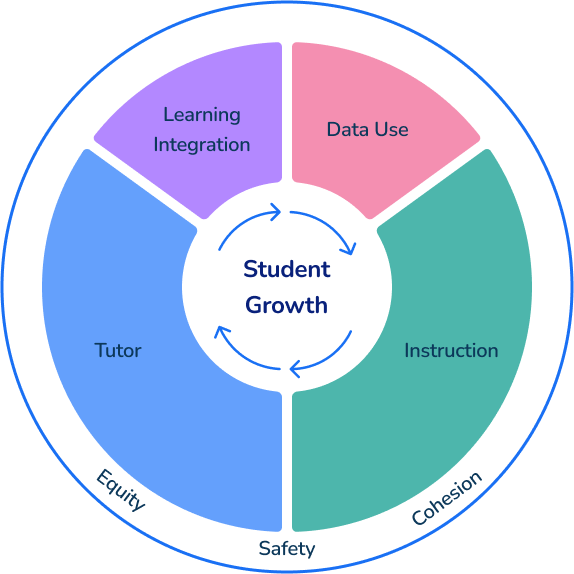
How to implement high-impact tutoring
School leaders play a critical role in implementing High-impact tutoring programs. They require significant planning and resources to lay the foundations.
First, use existing school data to identify the area of focus, goals and an implementation strategy.
Next, consider what the timeline for your high dosage tutoring will be. At a minimum, it is recommended to plan for a minimum of one semester, with a full school year being ideal to achieve maximum impact.
Additionally, consider your staff capacity and whether you have enough qualified staff to carry out the high dosage tutoring. If not, consider whether you have the budget for an external tutoring provider to ensure student needs are met with the dosage they require. Implementing high impact online tutoring can also be effective, especially if it’s personalized and relationship-based.
Ensure you research any external tutoring providers to check whether they align with your curriculum, complete regular collection of data and continuously seek to improve their services.
Finally, decide where your tutoring will take place. While it can take place at home, High-Impact Tutoring should be integrated into the school schedule, supplementing but not supplanting class time.
High impact tutoring is most effectively delivered in schools, especially if it’s part of a rotation or block period.
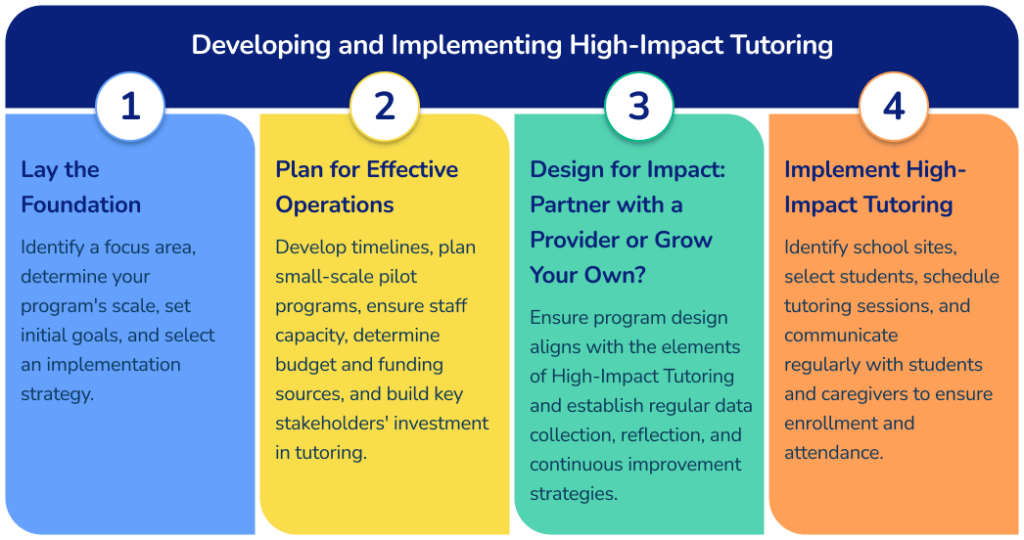
Case study
Renaissance Academy, a Charter school in New York, implemented Third Space Learning’s high impact tutoring program after their data wasn’t where they wanted it to be. They didn’t have the time or in-house resources to implement the intensive tutoring themselves. Their 4th and 5th grade learners began with at least two weekly sessions. School leaders were so impressed with the results they continued with Third Space Learning’s program the following year.
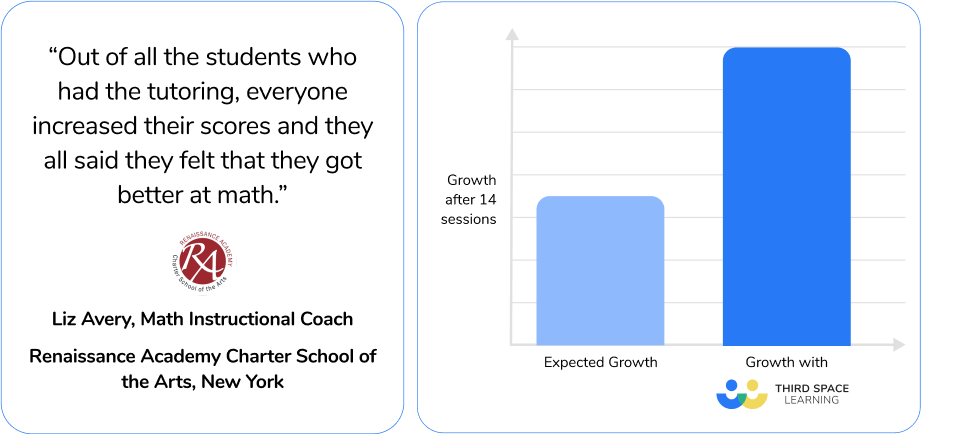
“Although we already had small group time, one-on-one is best. We saw a big impact. We decided to continue because it provides our students with one-on-one instruction in targeted areas that they need – based on our data.”
Liz Avery, Math Instructional Coach, Renaissance Academy Charter School of the Arts, New York
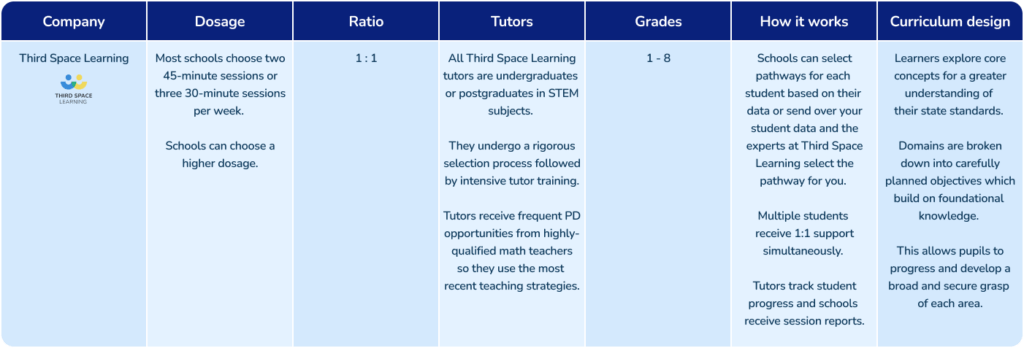
Measuring success of high-impact tutoring
Measuring success in high impact tutoring involves tracking student progress and academic growth.
High impact tutoring programs should prioritize student outcomes, including significant gains in student learning in addition to engagement.
Frequent data collection is essential to provide feedback to tutors and inform program improvements.
Regardless of who the tutoring providers are, the most important aspect is that they receive tutor training to help them understand the curriculum and provide high-quality instruction.
High impact tutoring with Third Space Learning
Third Space Learning provides targeted one-on-one math tutoring, personalized to individual student needs. Students work with one consistent AI mzth tutor, allowing them to learn and progress in a safe and supportive learning environment.
For just one low annual fee, schools receive unlimited tutoring for unlimited students, meaning they can pick the dosage and schedule best suited to each learner. Most schools in the many districts we work with choose either 2 x 45-minute sessions per week or 3 x 30-minute sessions to maximise math gains. Decide whether you want to accommodate time for tutoring within the school day, or whether learners will complete their sessions before or after school.
After identifying your target students, select the appropriate personalized, state-specific learning pathway for each learner. Throughout the program, AI tutor Skye adapts teaching in real-time to help learners accelerate their math knowledge. Student’s complete a skill check in and check out question to monitor progress throughout the program.
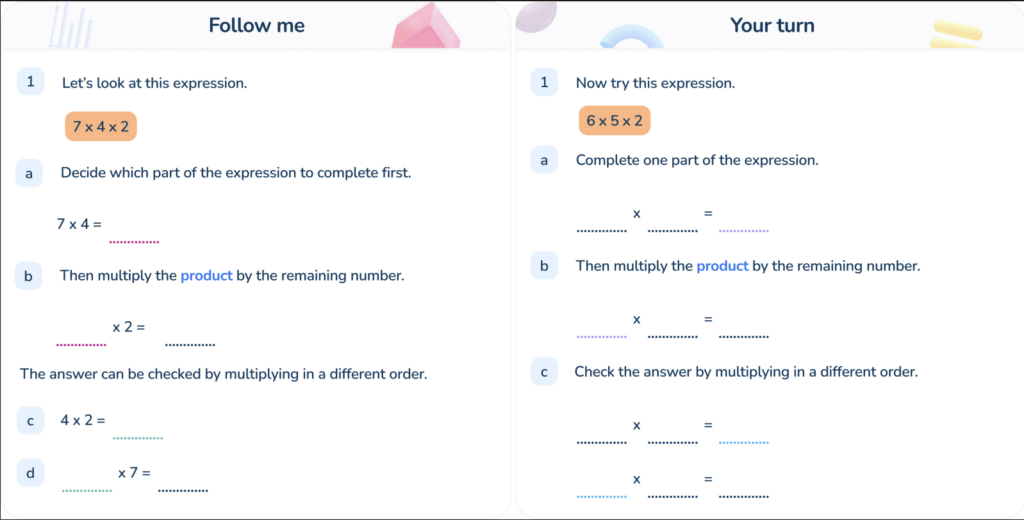
Third Space Learning collects this progress data for each student and provides on-demand reports for schools, showing the topics covered, skills practiced, and progress made.. Reports are available to school and district leaders in addition to class teachers to download and print to help inform in-class teaching and learning.
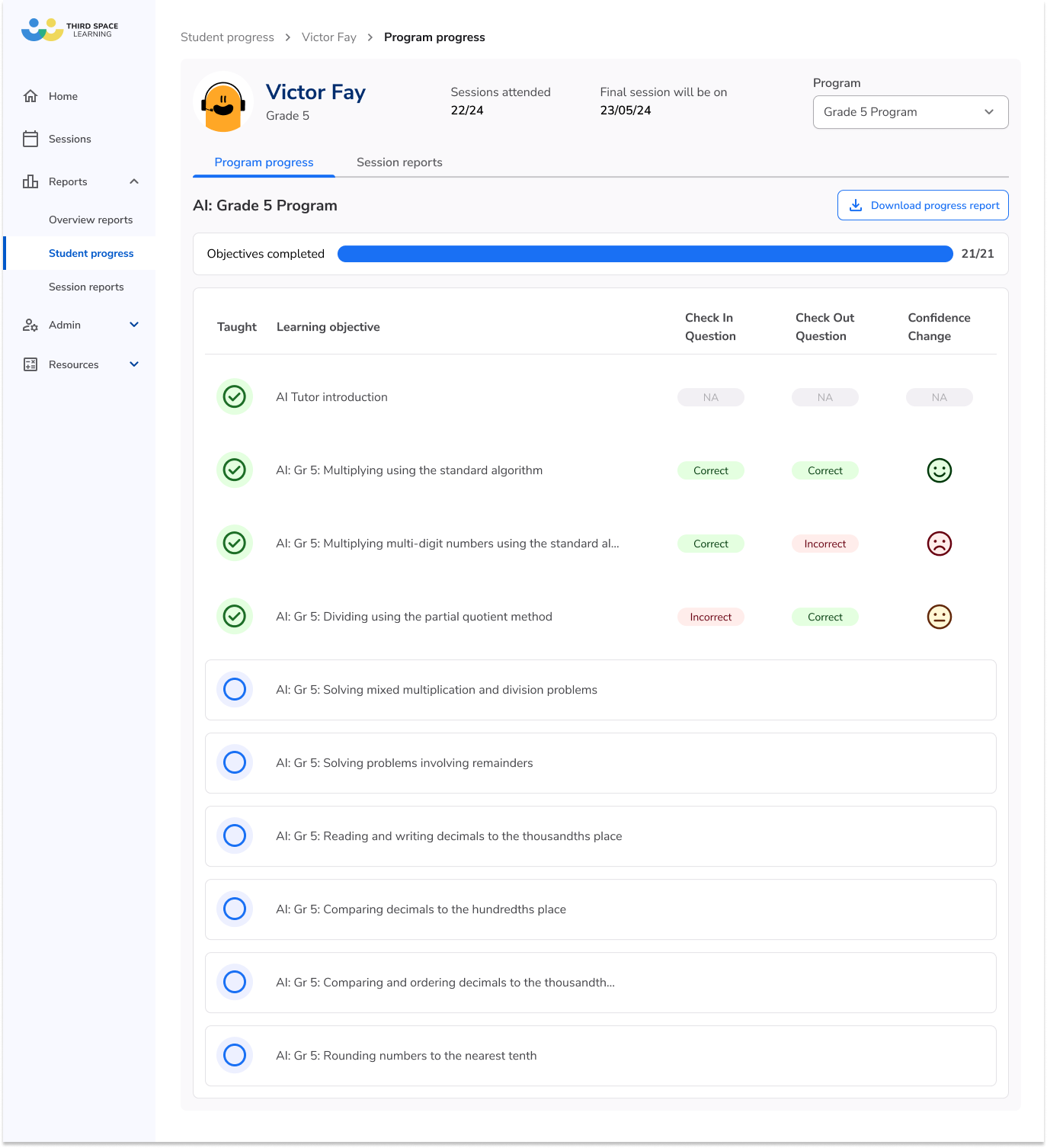
Since 2013, our mission has always been to support schools in closing the math achievement gap and make teachers’ lives a little bit easier in the process.
High impact tutoring key takeaways
High impact tutoring goes beyond academic support, it addresses the overall well-being of all students, including emotional, social and behavioral needs. Building strong tutor-student relationships helps build trust, increase student motivation and create a supportive learning environment. Tutors can also help students build a growth mindset and learning strategies to manage stress or anxiety, such as math anxiety or test anxiety.
Integrating these elements into a tutoring program means students receive the consistent, personalized and supportive instruction needed to thrive academically and emotionally. Often, this leads to increased student progress over a short period.
However, implementing high dosage tutoring requires careful planning, collaboration, and strategic use of resources. Educational leaders, including principals, superintendents, and district administrators, are key to the successful implementation of high-impact tutoring. They must advocate for high impact tutoring, set clear goals and visions, build buy-in from all stakeholders, and provide necessary training and professional development for teachers and tutors alike.
The Department of Education and individual state education agencies can also provide guidance, standards and best practices for implementing an effective tutoring program. This also opens up collaboration between networks of school districts to share resources and expertise.
Securing adequate funding is a key challenge for schools and school districts when implementing high impact tutoring. A few key funding considerations include:
Federal and state grants
Federal funds, similar to those provided through the ESSER Fund, can contribute towards a high impact tutoring program. Individual state education departments may also have grants for learning recovery initiatives, including tutoring interventions.
Title I Funds
Title I funds are available to public schools with a high percentage of low-income students. Use of these funds must address the needs of disadvantaged students within the school districts.
Community partnerships
Schools and districts can seek out partnerships with foundations and businesses within their community invested in improving education.
High impact tutoring FAQs
Tutoring can have an impact on students by offering personalized support with targeted instruction, at any grade level, from elementary to high school. A successful tutoring initiative can have a lasting impact on students including improving their academic performance, building confidence, and giving students a more positive attitude toward learning in general.
High impact tutoring is a form of intense tutoring in groups of three or less students. It is high dosage tutoring where learners attend sessions with professional tutors at least three times a week.
Five high impact strategies for student achievement are high-dosage tutoring, data-driven instruction, feedback and metacognition, collaborative learning, and fostering high expectations. When implemented correctly and consistently, they help students not only succeed academically but also develop the skills and mindset needed for lifelong learning.
Sources
EducationWeek, Bright Spots on NAEP ₁
Do you have students who need extra support in math?
Skye—our AI math tutor built by experienced teachers—provides students with personalized one-on-one, spoken instruction that helps them master concepts, close skill gaps, and gain confidence.
Since 2013, we’ve delivered over 2 million hours of math lessons to more than 170,000 students, guiding them toward higher math achievement.
Discover how our AI math tutoring can boost student success, or see how our math programs can support your school’s goals:
– 3rd grade tutoring
– 4th grade tutoring
– 5th grade tutoring
– 6th grade tutoring
– 7th grade tutoring
– 8th grade tutoring
